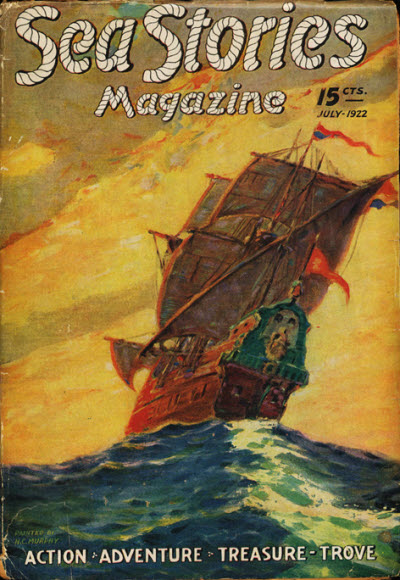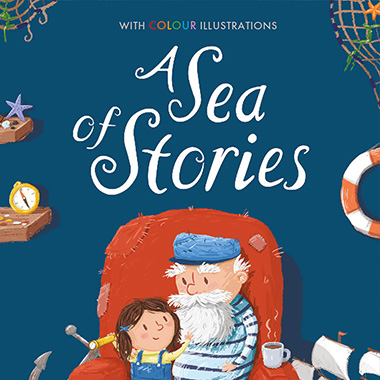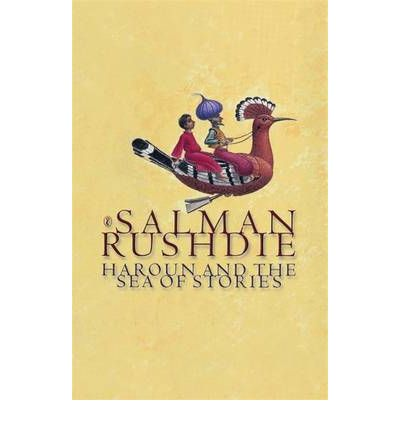
Many names allude to characters in the stories of One Thousand and One Nights, including Haroun al-Rashid, a real-life Caliph of Baghdad who appears in many of those tales. Butt the Hoopoe certainly sounds like a nod to the British glam-rockers Mott the Hoople.

Iff and the Butts work for the Walrus, who employs technicians named the Eggheads, a reference I trust I don’t have to explain. The text itself is replete with puns, references to Hindustani words or Indian historical figures, and even pop culture references. (He gets no help from the vacuous Prince Bolo, the antithesis of the typical prince-hero character, generally saying and doing the wrong thing or just showing no awareness of what’s happening around him.) Haroun faces difficult choices and shows courage in the face of great odds, standing up to the various otherworldly creatures trying to steal his father’s gift or kill Haroun’s new friends from Gup or sew the lips of the Princess Batcheat shut. Rushdie makes Haroun the hero of his own story in the tradition of children in literature who have to do something to save one or both of their parents. This leads Haroun to learn about the Sea of Stories, the plot by the evil Khattam-Shud to poison it and block its source, and the impending war between the Kingdoms of Chup and Gup that will determine the fate of the Sea. When Rashid fails to deliver at a speaking engagement, he and Haroun are whisked off to the Valley of K for his next assignment, speaking for the politician Snooty Buttoo – there are a lot of Butts in this book – only for Haroun to discover that his father has lost his ability to weave stories because Iff the Water Genie is trying to sever Rashid’s imagination.

Haroun Khalifa is the young son of Rashid, a storyteller who suddenly loses his gift of narration when his wife leaves him, leaving the two of them without any means of support and Rashid without his identity. It’s quite wonderful, featuring more of the wordplay and creativity that marked Midnight’s Children, reminding me in many ways of The Phantom Tollbooth, one of the best children’s novels I’ve ever read (twice, in fact, once on my own and again to my daughter), and the works of Roald Dahl.

What I didn’t know until very recently was that he wrote a children’s novel called Haroun and the Sea of Stories, which appeared on the Guardian‘s list of the 100 greatest novels ever written. I’d only read one Salman Rushdie novel prior to this month, tackling Midnight’s Children back in 2010 I found it a somewhat difficult read, but brimming with imagination, big themes, and incredible prose and wordplay.


 0 kommentar(er)
0 kommentar(er)
